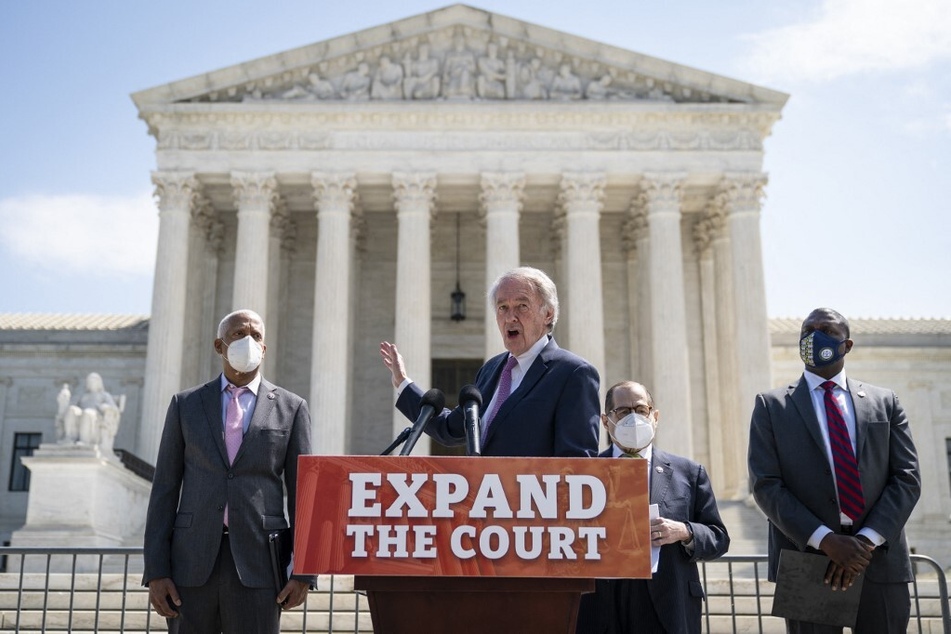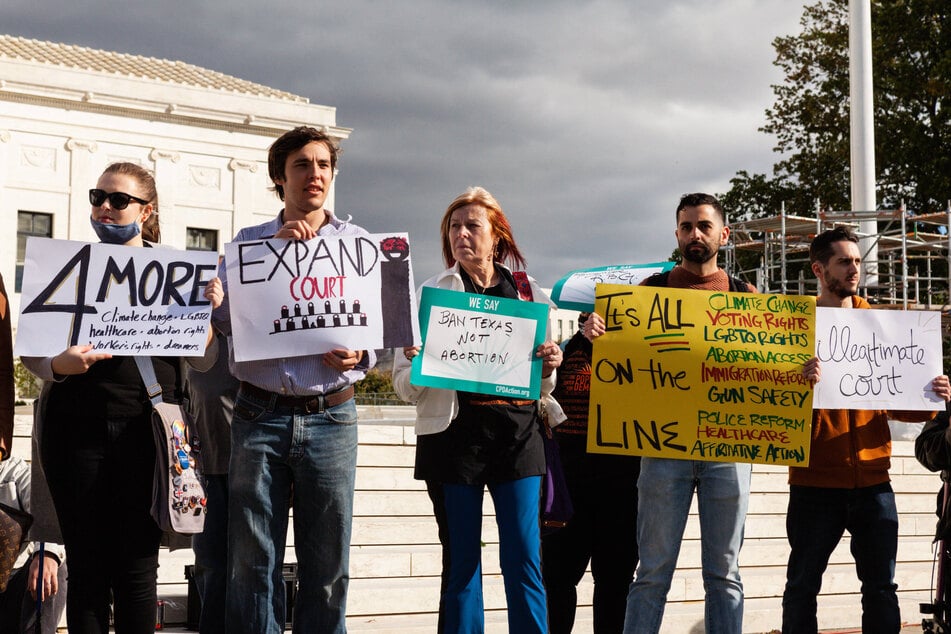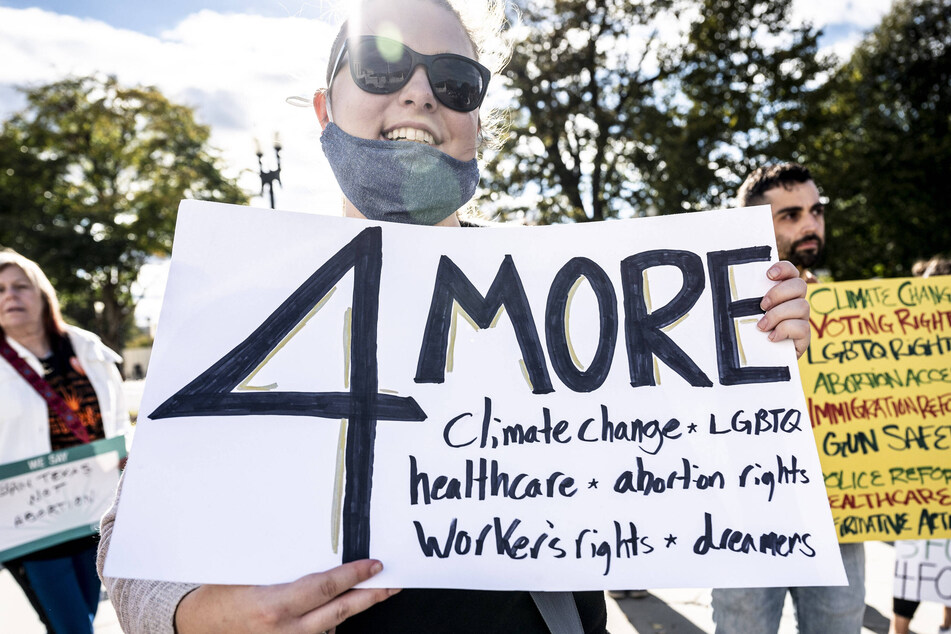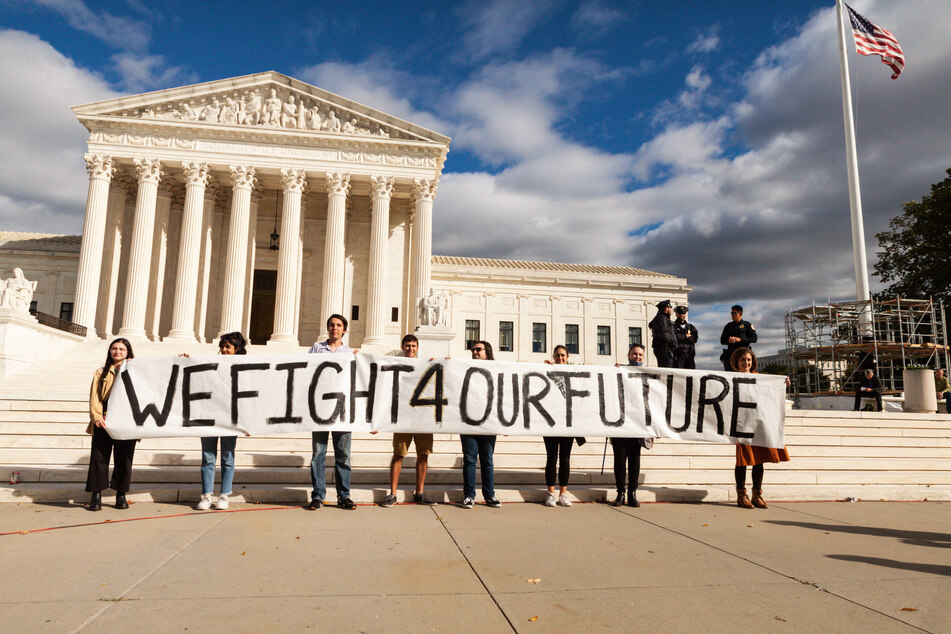Expand the Supreme Court: What does it entail, and is it a good idea?
Washington DC - Following the Supreme Court's latest string of right-wing rulings, activists and elected officials are once again calling for the addition of more justices. What does expanding the court entail, and would it help solve the problems with SCOTUS?

Public faith in the legitimacy of the Supreme Court is waning rapidly following a slew of politically polarizing decisions in recent years.
From abortion rights to affirmative action, partial student loan cancelation, and more, the current Supreme Court appears hellbent on rolling back decades of protections for minorities, women, and LGBTQ+ communities.
President Joe Biden last year nominated Ketanji Brown Jackson to the court, but the liberal justice's history-making appointment has done little to slow her conservative colleagues' attacks on basic rights.
Meanwhile, conservative Justices Clarence Thomas and Samuel Alito have sparked serious ethics concerns over undisclosed gifts from right-wing donors.
In face of these growing threats, some activists and politicians are calling for Supreme Court expansion in order to curb the current conservative majority's unchecked power.
What does it mean to expand the Supreme Court, and is expansion a good solution?
What does expanding the Supreme Court mean?
Expanding the Supreme Court refers to increasing the number of justices serving on the body. Sometimes referred to by opponents as "packing" the court, expansion is described by advocates as one of the most viable ways to dilute the power of the current conservative majority and protect hard-fought liberties from right-wing rollback.
How many Supreme Court justices are there?
There are currently nine Supreme Court justices, including one chief justice and eight associate justices. Supreme Court justices are nominated by the president and confirmed by the Senate in a simple-majority vote. They are appointed for life.
Has the number of Supreme Court justices ever changed before?
Changing the number of justices on the Supreme Court is not without precedent. SCOTUS initially had six justices when it was created via the Judiciary Act of 1789.
The number has changed seven times in all, even going as high as 10 during the American Civil War. Shortly after the war, the number of justices dropped to nine, where it has remained ever since.

What would it take to expand the Supreme Court?

Congress has the power to expand the Supreme Court.
The US Constitution calls for the creation of a Supreme Court but leaves the details, including size, to the legislative branch.
The current court has nine justices. Reform advocates and some Democrats have called for that number to be raised to 13 to loosen a current right-wing stranglehold expected to last for decades.
Led by Senator Ed Markey and Representative Hank Johnson, members of Congress have reintroduced the Judiciary Act of 2023 to add four more justices to the court.
The Judiciary Act must gain a simple majority of votes in the House of Representatives in order to pass. In the upper chamber, it would either need a 60-vote supermajority, or 50 votes plus one if the filibuster is blocked. The president would then have to agree to sign the bill into law.
Can the president expand the Supreme Court?
The president of the United States requires congressional approval to expand the Supreme Court.
Even if he did have the opportunity to expand the court, it is doubtful Biden would do so. In the wake of recent radical decisions, Biden has slammed the current court as "not normal" but once again affirmed his opposition to adding more justices, claiming that doing so would "politicize [the court] maybe forever."
Is expanding the Supreme Court a good idea?

Supporters of expanding the Supreme Court argue that the high court is already politicized and that the existential threats posed by the current conservative majority demand radical action – before it's too late.
One of the most common arguments against expansion claims that adding justices is a race to the bottom, and that Republicans are sure to retaliate should they regain control of Congress and the presidency.
Proponents counter that the threats to basic rights for marginalized communities are so dire that waiting for seats to open up is no longer a viable option. "Playing it safe" now does not guarantee Republicans won't seek to pack the court should they win the presidency and majorities in both chambers of Congress in the future.
On top of that, the traditional logic that Americans should try to reverse the trajectory of the Supreme Court at the ballot box is coming under increasing scrutiny. GOP-controlled state legislatures have passed suppressive laws that disparately impact Black and brown Americans, making voting even more difficult than it already was for communities facing the greatest threats.
The Supreme Court's complicity in many of these attacks undermining hard-fought victories of the Civil Rights Movement makes the case for expansion all the clearer.
In addition to imposing term limits and an enforceable ethics code for justices, expansion of the Supreme Court presents an opportunity for lawmakers to rein in the power of a dangerous conservative majority.
Cover photo: IMAGO / NurPhoto

